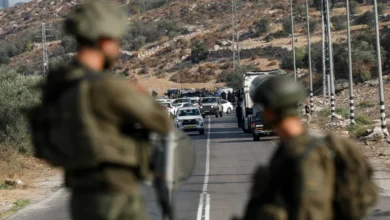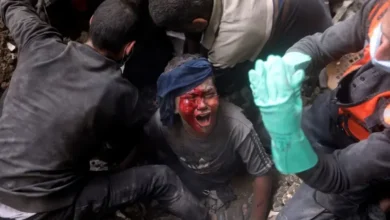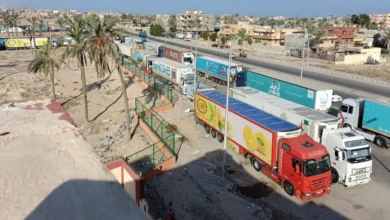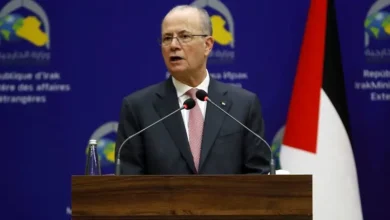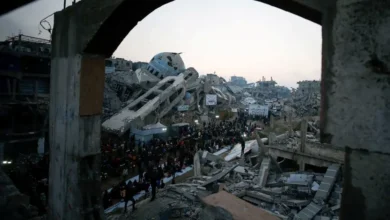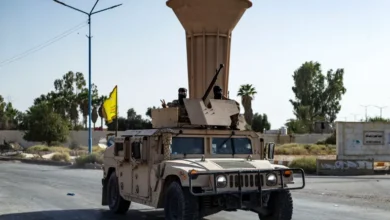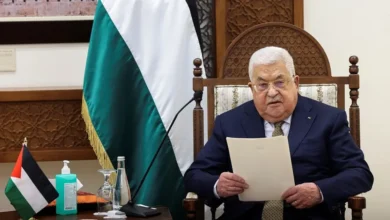Middle East round-up: Talks, then a ‘pogrom’ in Palestine
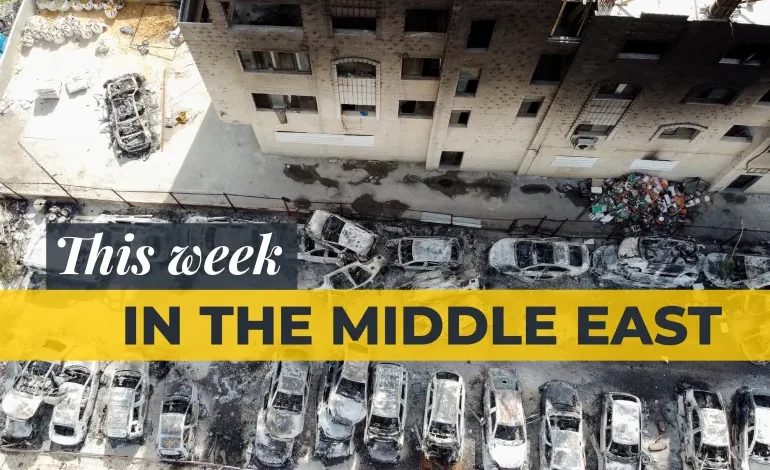
Israeli settlers rampage through Palestinian villages, Syria’s president is getting friendly with several Arab states, and attacks against African migrants in Tunisia. Here’s your round up of our coverage, written by Abubakr Al-Shamahi, Al Jazeera Digital’s Middle East and North Africa editor.
With the backing of the United States, Israeli and Palestinian officials met at a Jordanian resort on Sunday in an attempt to reach a deal to end more than a year of intense violence. By the end of it, the two sides said they had agreed to work closely together, to bring about a “de-escalation on the ground”. And, according to a joint statement, Israel even said it would suspend the building of any new settlement units in the occupied West Bank.
Or, at least, that was the optimistic reading.
On the ground, the reality of the situation in the West Bank was something quite different. There, a Palestinian gunman killed two Israeli settlers travelling in a Palestinian village called Huwara, just south of Nablus. Then, 400 or so settlers took it upon themselves to seek “retribution”- by setting Huwara, and several other villages, on fire. One Palestinian was killed, hundreds were injured, and dozens of cars and buildings were destroyed. To make matters worse, videos appear to show Israeli soldiers were, at best, unable to do anything to prevent the settlers, or at worst, idly standing by during the rampage.
In the wake of the attack, several Israeli politicians, including government ministers, implicitly backed the actions of the settlers, with the far-right finance minister going so far as to say that Huwara should be “wiped out” by “the state of Israel”. An Israeli general, on the other hand, called the attack on Palestinians a “pogrom”.
Assad in from the cold?
Damascus has received a lot of visitors this week. First, it was a delegation of parliamentarians from Egypt, Iraq, Jordan, Palestine, Lebanon, Libya, Oman and the UAE. Following on from that was the first visit by an Egyptian foreign minister since 2011, the year a mass uprising began against Syrian President Bashar al-Assad, which launched a civil war that came close to getting rid of him.
The way al-Assad and his government responded to the uprising, particularly the mass killings and human rights abuses, contributed to the Syrian leader being frozen out of the Arab diplomatic sphere. His close ties with Iran, a major rival of a number of Gulf Arab countries in particular, helped cement the animosity.
And yet, a number of those same governments have been making overtures to al-Assad for years now, as it became ever more apparent that he was going to hold onto power. Last month’s devastating earthquakes then presented an opportunity. With the death toll now standing at more than 6,000 people in Syria (a number that keeps rising), the need for help that that’s created has also provided an opening for those who wish to patch up their relations with the one-time outcast, with humanitarianism providing a useful defence against any critics. But, as this analysis explains, politics and self-interest loom large.
